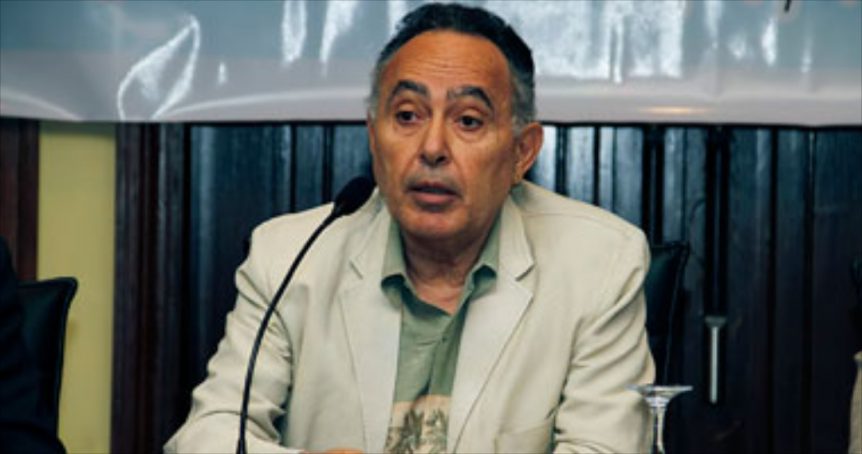The sentence of 15 years in prison for human rights defender Bahey eldin Hassan, issued in absentia today by Cairo’s Fifth Circuit Terrorism Court, is condemned by the Cairo Institute for Human Rights Studies (CIHRS). The ruling against Hassan, the director of CIHRS, is a vindictive act intended to discourage him from continuing his over three decades of advocacy for the individual and collective rights of Egyptians.
Bahey’s sentencing today, in Case no. 5370 of 2020, comes in the context of a wider state security campaign that has been ongoing for six years; a campaign of intimidation and vengeance targeting Egyptian rights defenders both inside and outside the country, with the goal of deterring them from exposing serious human rights crimes.
CIHRS demands the dismissal of all charges against its director Bahey eldin Hassan in Case 5370 of 2020 State Security, as well as the other cases against him. CIHRS further calls on the Egyptian government to put an end to its retaliatory campaign against Egyptian human rights defenders and organizations, and to stop using the judiciary to execute this retaliatory campaign. Hassan himself has been a long- time advocate of a depoliticized and independent judiciary:
“For decades, judicial independence in Egypt has been one of the goals to which I’ve devoted my life. Throughout this time, I’ve joined forces with highly principled judges dedicated to the same goal,” affirmed Bahey eldin Hassan, who then called on Egyptian judges “to continue their struggle to be free from state security domination over the workings of justice; only an independent judiciary will eradicate repression from Egypt.”
The sham ruling against Bahey eldin Hassan is not the first of its kind and it is likely not to be the last. Hassan has endured a series of retaliatory measures starting in 2014 with death threats that resulted in his departure from Egypt. Hassan’s assets were also frozen and his name placed on arrival watch lists. In another case (5530 of 2019), Hassan was sentenced, in absentia, to three years in prison on September 19, 2019, in addition to a 20,000 Egyptian pound fine, for defaming the judiciary in a tweet. Today’s verdict was issued by a terrorism circuit, based on the Penal Code and the Cyber Crime Law.
Despite the repeated accusations in the two almost -simultaneous cases (Case 5530 of 2019 and Case 5370 of 2020 ), care was taken to separate them into two parallel cases, with the intention of doubling the punishment for Hassan and escalating government terror against the remaining human rights defenders. Investigations in case 5370 of 2020 (judgment issued today) began in July 2018,, in parallel with the continuing investigations for the previous case (5530), for which a verdict was issued in September 2019.
Many human rights groups have already warned about the government’s exploitation of the Penal Code and the Anti-Cyber Crime Law tosettle political scores, similar to today’s rulingissued by judicial circuit on terrorism. The ruling is also based on false and malicious accusations as evidence of indictment, such as “the use of social media to defamethe judicial authority,” and “the dissemination of false news with the aim of harming the country’s economic position” and “disrupting the provisions of the constitution and law.”
The National Security Agency based their investigations of these fabricated charges on posts by Hassan on his social media accounts, and on his participation in United Nationsconventions, international meetings, and press conferences. These practices indicate that Egypt’s state security and judicial authorities view the defense of human rights, on whatever platform, as a crime that must not be tolerated.
The Public Prosecutor that ordered the investigation in the two cases against Hassan is the same Public Prosecutor who had previously decided to suspend investigation of a complaint by Hassan against a media presenter who publicly -on live television – incited to kill Hassan in“a Russian way” with poison. The same media presenter later received a reward from Egyptian president Abdel Fattah al-Sisi, appointing him to an official position.
Share this Post

